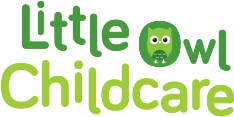We have all been there, thinking that our toddlers are crazy and question their normality. Toddlers do some very strange behaviours, some more than others, this is completely normal and usually very common. Doorknob licking and barking like a dog are commonplace. “The vast majority of strange toddler behaviours are short-lived phases,” (Heather Wittenberg, PsyD, psychologist).
Head banging – This behaviour can be worrying to witness, however a lot more common than you may think. The toddler usually is after some attention or uses it to sooth themselves. Unless the child is doing it over socialising with friends, eating or sleeping then this is nothing to worry about and the behaviour can just be ignored or redirected.
Putting crazy things in their mouths – Children use their mouths as tools for exploring the world. They yet quite understand that some things you can eat and some you can’t. Most of the time they will learn themselves, that actually that bit of soil I just put in my mouth didn’t taste vey nice.
Imaginary and Stuffed Friends – Know a toddler who’s so obsessed with their stuffed animals that they line them up perfectly at bedtime, or one who has made up a whole family of imaginary friends? This is a normal reaction to the realization that the world is confusing and difficult to understand. When you embrace your child’s imaginary world, you honour their creativity.
Playing with Their Poop – Then there’s that curious toddler who takes off their nappy to explore the mess they’ve made during naptime. Ick! It’s way more common than people realize, and most of the time it’s just that they’ve discovered an intriguing new plaything.
There you have it, did you recognise some, or did you find out new behaviours you didn’t know existed!

Recent Comments